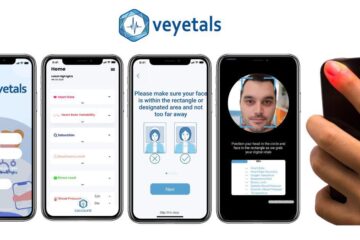Image Credit: Canva
Diabetes is a chronic condition that affects millions of people around the world. It is a disease that occurs when the body is unable to produce enough insulin or use it effectively. Diabetes can lead to a variety of health problems, including heart disease, stroke, blindness, kidney failure, and nerve damage. Neglecting diabetes care can be dangerous and can result in serious health consequences. In this article, we will explore the dangers of neglecting diabetes care and ways to prevent and manage the disease.
Neglecting diabetes care can result in numerous health complications, such as hyperglycemia and hypoglycemia. Hyperglycemia, where blood glucose levels are too high, can cause damage to organs and blood vessels, leading to symptoms such as increased thirst, frequent urination, and blurry vision. Hypoglycemia, where blood glucose levels are too low, can lead to shaking, sweating, and confusion.
Furthermore, people with diabetes are at an increased risk of developing cardiovascular disease, including heart attack and stroke, due to damage to blood vessels. Neuropathy, a condition where nerves are damaged, can also occur, resulting in tingling, numbness, and pain in the hands and feet. Additionally, neglecting diabetes care can lead to kidney disease and failure, as well as vision loss and blindness from damage to the blood vessels in the eyes.
Finally, people with diabetes are more susceptible to infections, as neglecting diabetes care can weaken the immune system. It is important to maintain proper diabetes care to reduce the risk of these health complications.
In addition to the physical health risks associated with neglecting diabetes care, there are also emotional and psychological effects that can occur. Living with a chronic condition such as diabetes can be stressful, and neglecting diabetes care can intensify these feelings. Stress and anxiety can result from neglecting diabetes care, making it more difficult to manage the disease. This stress can also manifest itself physically in the form of headaches, fatigue, and muscle tension.
Depression is a common condition among people with diabetes, and neglecting diabetes care can make feelings of sadness and hopelessness worse. Similarly, anxiety is another common condition among people with diabetes, and neglecting diabetes care can increase feelings of worry and anxiety.
Neglecting diabetes care can also lead to social isolation. Some people with diabetes may feel embarrassed or ashamed of their condition, causing them to withdraw from social activities. This social isolation can further exacerbate feelings of stress, anxiety, and depression.
Neglecting diabetes care can also result in financial costs that can add to the burden of managing the disease. One of the primary financial costs of neglecting diabetes care is increased medical expenses. Neglecting diabetes care can lead to a range of health problems that require medical attention, which can result in higher medical bills and increased healthcare costs.
In addition to increased medical expenses, neglecting diabetes care can also lead to lost income. Missed workdays and decreased productivity can result from neglecting diabetes care, causing individuals to lose income and potentially face financial hardship.
Another financial cost of neglecting diabetes care is increased insurance premiums. Insurance companies may view people with diabetes who neglect their care as high-risk, resulting in higher insurance premiums. This can make it more difficult and expensive for individuals to access the healthcare they need to manage their diabetes.
Preventing and managing diabetes is possible with several steps. One of the most important steps is to adopt healthy eating habits. A well-balanced diet can help stabilize blood glucose levels and reduce the risk of complications. Regular physical activity is also crucial for diabetes prevention and management. Exercise can help improve blood glucose control and reduce the risk of complications.
Monitoring blood glucose levels is essential for diabetes management. Regular monitoring can help individuals with diabetes make necessary adjustments to their diet, exercise routine, and medication. Medications are also an essential part of diabetes management. People with diabetes may need to take insulin or other medications to keep their blood glucose levels under control.
In addition, regular visits to a healthcare provider are crucial for people with diabetes. Healthcare providers can help monitor blood glucose levels, provide guidance on diabetes management, and screen for complications. By following these steps, people with diabetes can prevent or manage the disease effectively.
Conclusion
Neglecting diabetes care can be dangerous and can lead to serious health consequences. However, there are steps people can take to prevent and manage diabetes. Eating a healthy diet, getting regular exercise, monitoring blood glucose levels, taking medications as prescribed, and regularly visiting a healthcare provider are all important parts of diabetes management. It is important for people with diabetes to seek help and support when needed.
To learn more about how Veyetals can help manage your health Contact Us Here.



